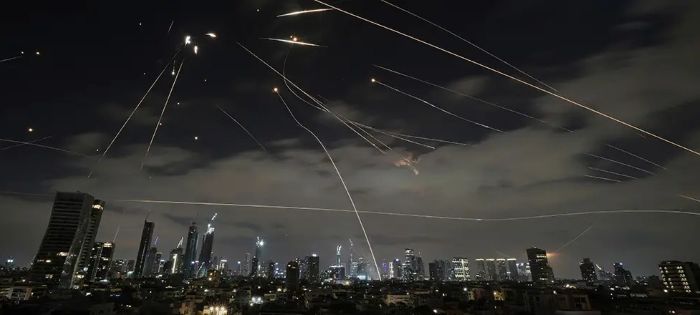(3 Minutes Read)
The abrupt end to the Iran-Israel war brought global relief, but its economic and humanitarian aftershocks were deeply felt even in distant regions like Africa. The conflict highlighted how interconnected the world is—Africa, despite its geographical distance, suffered from oil price hikes, disrupted trade, tourism losses, and setbacks to its energy transition plans. The key lesson is that in today’s globalised world, no country remains untouched by war, and neutrality does not shield one from its consequences.
The world felt relieved when the Iran-Israel war ended abruptly in the same way it started. Many felt that it would be a proxy war, and neither of the actors had the tenacity to go beyond the rhetoric. However, it did happen, and the US came to the rescue of Israel, a long-time ally, when things were at the razor’s edge. Iran also retaliated in its way and did not meekly cave in. Yet, no one could pass the test of a winner in a war since the victory is always pyrrhic: at a cost. All parties in the war can count on the pain inflicted on them by way of human miseries, dislocations, disruptions and the like.
Now the war is supposed to be over, although macabre headlines suggest the fragility of the peace that is on the ground, can be broken by either party on a slight provocation. Let us hope that wise sense would prevail on all involved parties not only to engage in violence but vituperative talks and actions that enrage the other party.
With that premise, it is important to have an assessment of whether the war continued for a longer time. Iranian Parliament decided to close the Strait of Hormuz, which would have led to a major blockade of the sea route for the haulage of gas and oil to different parts of the world. Reports are there that the US Navy was deploying heavy forces around the Strait in the event of a closure to break open the route by force. This would have escalated the atrocities not only in the war zones but also in other neighbouring countries. Air traffic through the Middle East was disrupted. Since the start of the war, oil prices zoomed high, and stock exchanges shaved off their market capitalisation in trillions.
All those developments would have had a deep impact on Africa. The hike in oil prices would not have helped the oil-producing countries on the continent since the oil movement would have been heavily impaired. There are estimates of losses suffered by oil-producing countries like Nigeria, Libya, Gabon, Angola, etc, which could not take advantage of the oil price increase, mostly due to blockade and, secondly, due to inability to adjust the production to prevailing prices. For oil-consuming countries on the continent, the increased prices could have resulted in higher bills and severe scarcity at home, impacting economic activities.
Economies of many African countries have a heavy dependence on either Iran or Israel for their economic engagements. For instance, Morocco in Northern Africa is heavily dependent on tourist traffic from Israel. So also is the case with Seychelles and Mauritius. It can be inferred that the tourist traffic will be adversely affected not only in the short run, but in the medium term also going given the pains inflicted on Israel by way of destruction and human lives. In an equal measure, Iran’s trade with the entire Africa was USD 1.83 billion in 2024. Iran’s exports to Africa were USD 1.83 billion, and imports were USD 95 million, giving Africa a trade advantage.
Also, the disruptions during the war might delay the energy transition plans of countries like Egypt, South Africa, Algeria, Tunisia, Mozambique etc., since many of the donor/partner countries/ private corporations might have put the program on hold because of the stringent financial conditions the war would have inflicted on them.
What is the lesson that Africa can learn from the war? Foremost is the spread effect of war despite the geographical distance from the war zones. Secondly, no country can be isolated during and after war; however, it’s a neutral position. Will that awareness dawn on people, nations and civil society?





